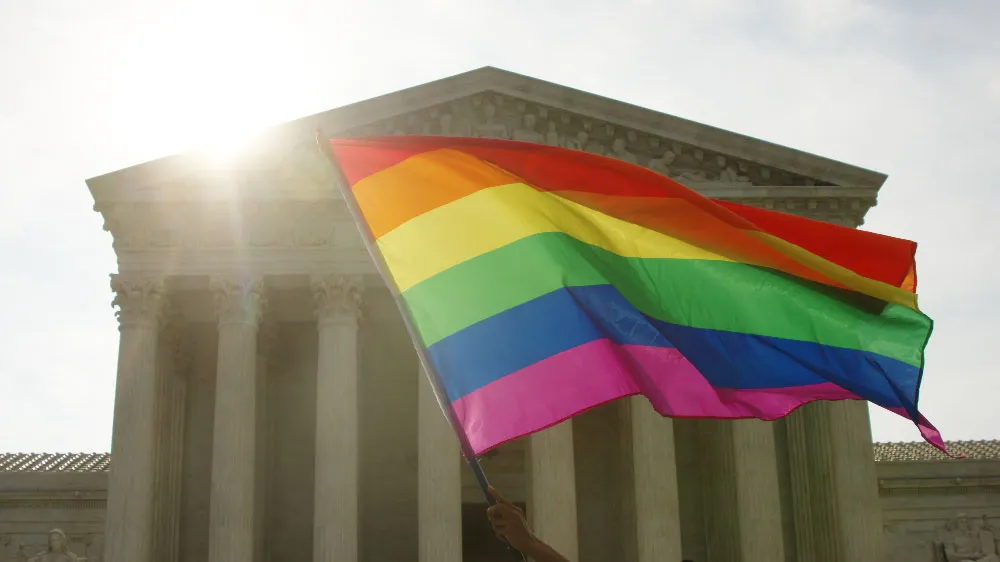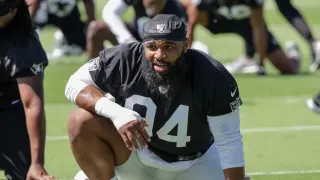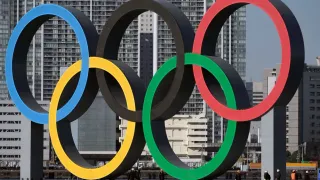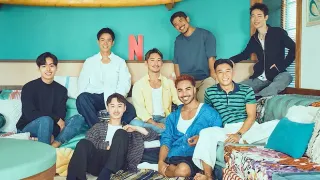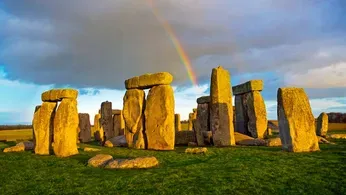
Mar 4
Could Stonehenge Have Had a Very Different (and Phallic) Meaning to the Ancients?
Kilian Melloy READ TIME: 2 MIN.
Cynics who scoff that Stonehenge, the imposing site in Britain where 25-ton upright stones are arranged in a circle and topped with stone lintels, is nothing more than prehistoric junk can now be educated that, at least according to theory, Stonehenge is a prehistoric monument that celebrates junk.
Constructed mainly during the Bronze Age, and theorized to have taken about 1,500 years build, Stonehenge is thought to have been intended for astronomical observation and, possibly, religious purposes. A new theory introduces a sexier motive: fertility.
"Professor Terence Meaden, an archaeologist and retired physicist from the University of Oxford, claims that Stonehenge may have been a phallic temple," UK newspaper the Daily Mail explained.
"Professor Meaden claims the central stone would have resembled a 2.6-metre-long (8.5ft) anatomically correct penis, complete with an 80-centimetre-long glans or bulbous tip," the Mail added, before noting that the stone now lies toppled and partially buried.
But thousands of years ago, the stone "would have looked like a 2.6 metre erect male member, equipped at its upper end with an 80-centimetre long glans or bulbous tip," another British newspaper, the Independent, reported.
Moreover, Prof. Meaden "estimates that prehistoric craftsmen used tools to remove up to 200,000 cubic centimetres of stone to give it that form."
The position of the stone still indicates an intimate familiarity with the sky and seasons; the Mail noted that the supposedly phallic stone "would have aligned with the sunrise at the summer solstice and the sunset at the winter solstice," and the shape and placement together might possibly "suggest that Stonehenge could be a vast fertility temple, designed to highlight auspicious days in the Stone Age calendar."
Bolstering the interpretation of Stonehenge serving, at least in part, as a site for fertility worship, "several smaller carved penises from around the time of Stonehenge's construction have been found just two miles from the site," the Mail said.
A different version of the theory of Stonehenge as a place where sexuality was celebrated was suggested by Meaden in 2017, when he observed in a scientific paper that shadows from some of the upright stones were calibrated to "penetrate" stones intended to represent vaginas, Men's Health reported at the time.
Wrote Meaden: "My basic discovery is that many stone circles were built at a time of a fertility religion and that stones were positioned such that at sunrise on auspicious dates of the year phallic shadows would be cast from a male-symbolic stone to a waiting female-symbolic stone."
Kilian Melloy serves as EDGE Media Network's Associate Arts Editor and Staff Contributor. His professional memberships include the National Lesbian & Gay Journalists Association, the Boston Online Film Critics Association, The Gay and Lesbian Entertainment Critics Association, and the Boston Theater Critics Association's Elliot Norton Awards Committee.
